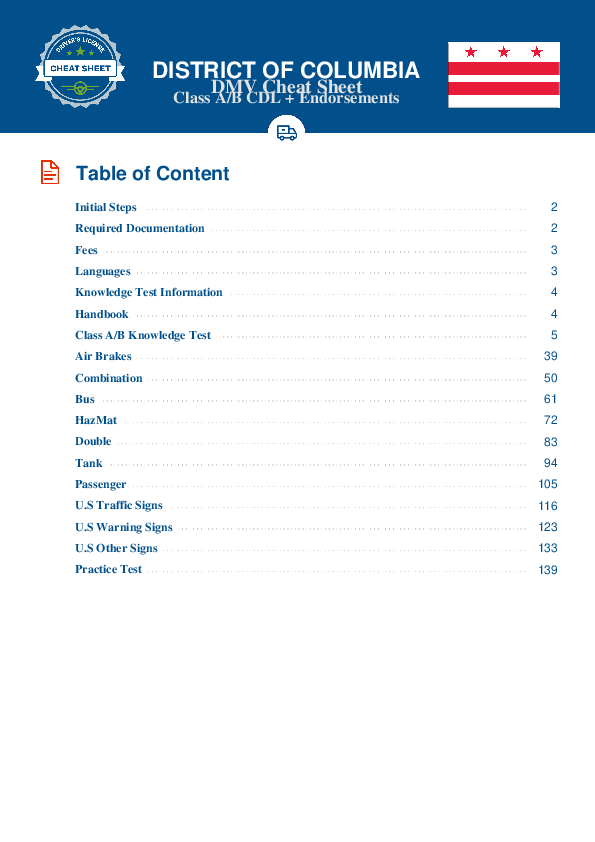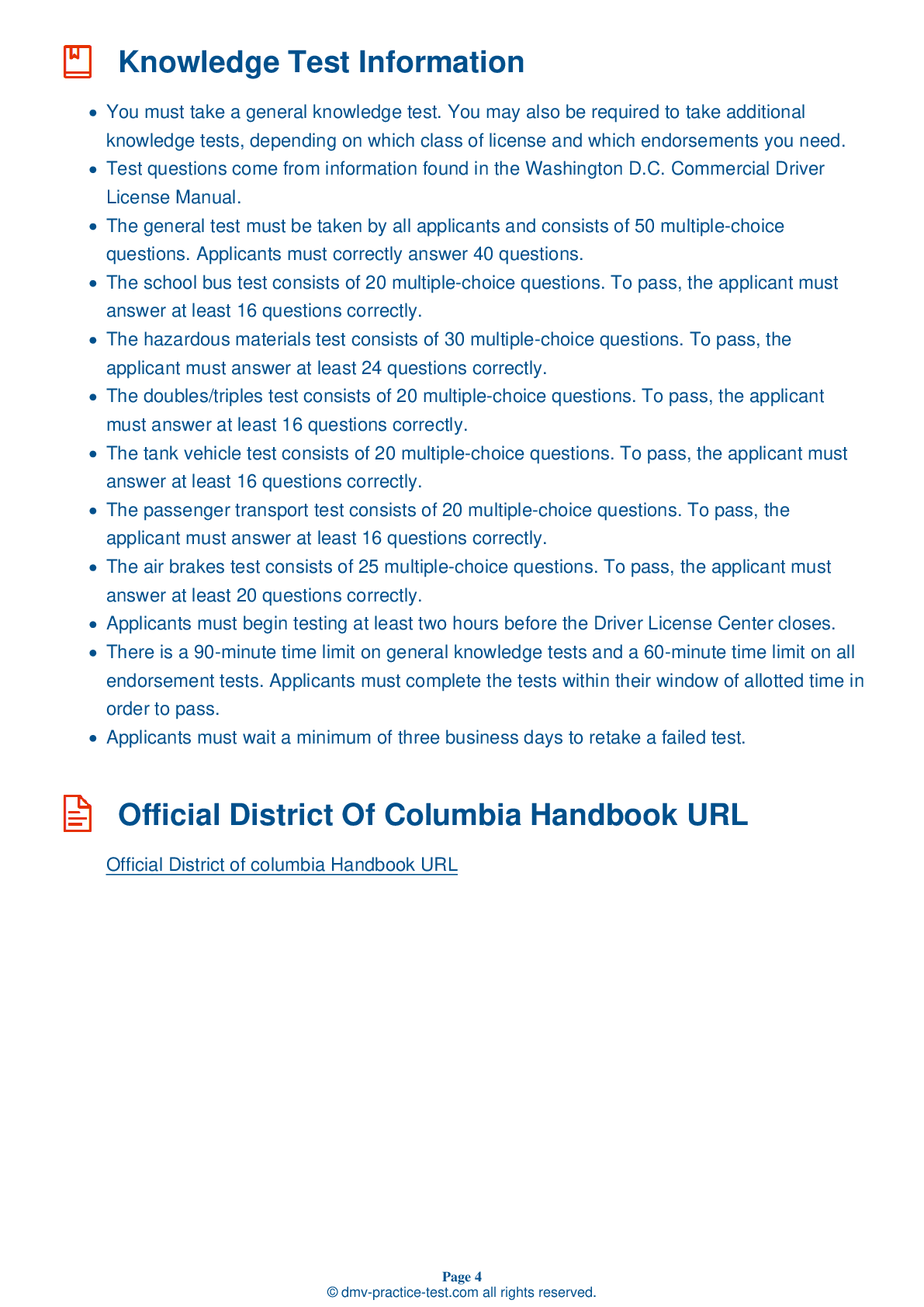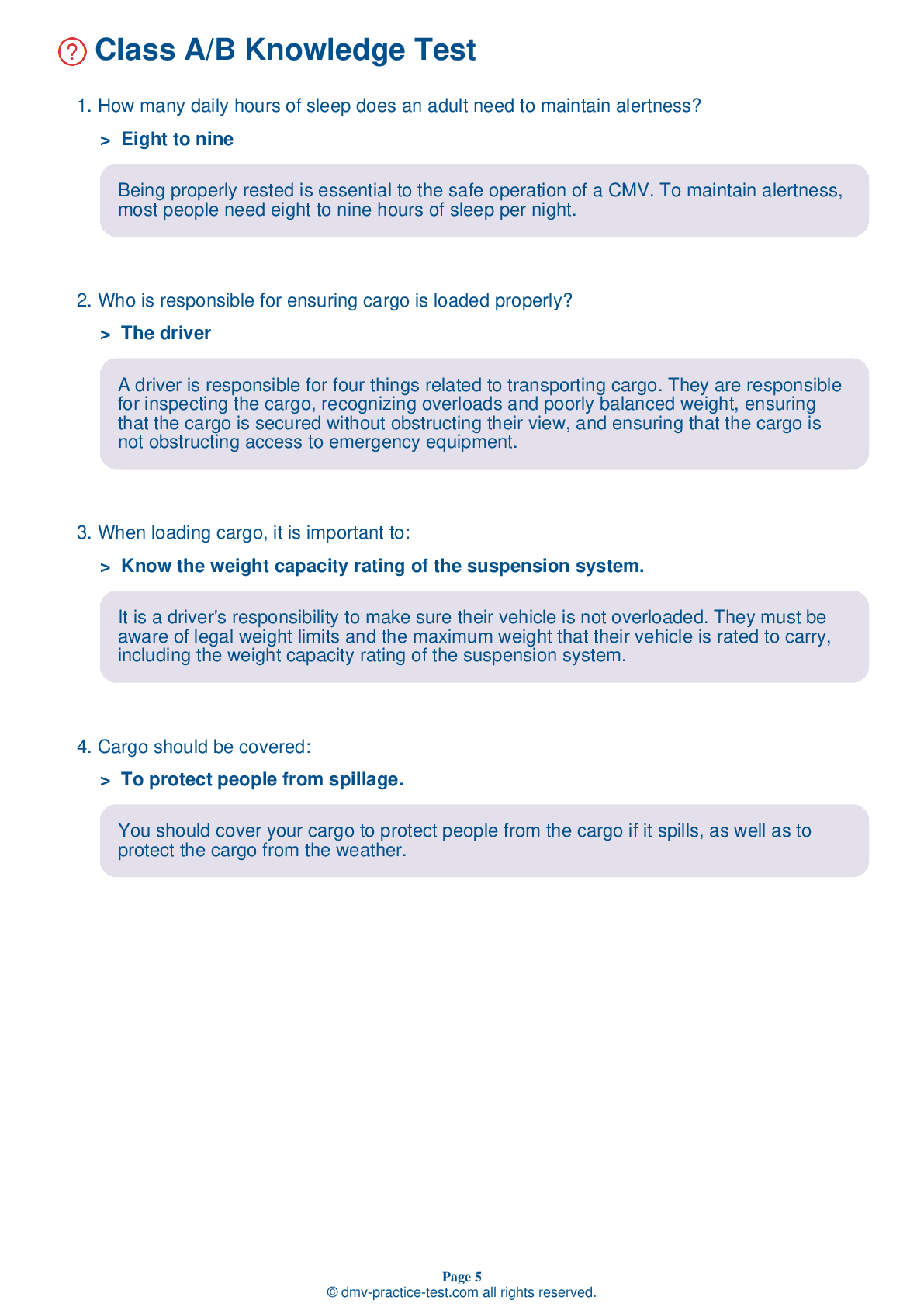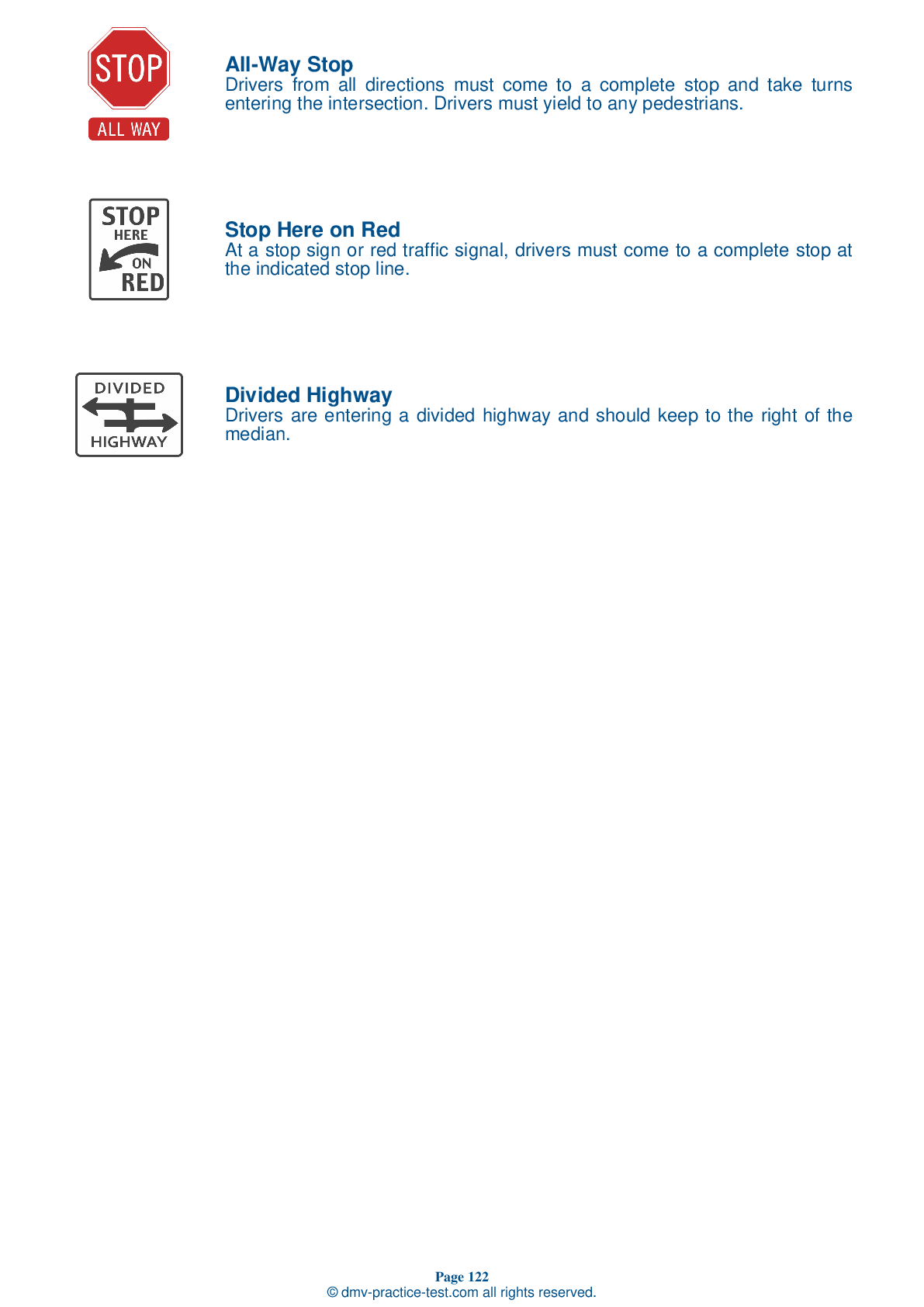Knowledge Test Class B #2
Class B Driving Test | District Of Columbia 2026 #2 Page 7 of 7
Train for FREE online with our District Of Columbia class B license test. The official exam test consists of several obligatory parts, with all of them checking your knowledge of different blocks of road rules. If you need to obtain a DC CDL class B permit in 2026, practice as much as possible. Free sample tests published on our website will help you check and improve your knowledge and boost your grades. Please bear in mind that CDL class B requirements may vary from state to state.
50
40
20
43 . If asked to sight-side back your vehicle into an alley, you should first:
Pull past the alley and stop parallel to the outer boundary.
If you are asked to alley dock, you should first pull past the alley and stop your vehicle in a position that is parallel to the outer boundary. From there, you should back your vehicle entirely into the alley parking area. Your vehicle should be parked in a straight position within the boundaries of the parking space.
44 . When stopping a manual transmission vehicle, what should you do when the engine is close to idle?
Shut off the vehicle.
When stopping a vehicle with a manual transmission, you should push in the clutch when the engine is close to idle.
45 . Passive railroad crossings:
Should never be crossed by a CMV.
Railroad crossings that are not controlled by any type of traffic control device are known as passive crossings. The decision to proceed across tracks at a passive crossing is entirely up to the driver.
46 . Brakes can get out of adjustment:
If brakes on one side are used more often than brakes on the other side.
Brakes are particularly prone to getting out out adjustment if they are hot. Use proper braking techniques to avoid letting your brakes overheat.
47 . When checking the exhaust system, it should be:
Cracked.
When checking the exhaust system, you should verify that no parts of the system are loose, broken, or missing.
48 . After starting the engine, oil pressure should reach a normal level:
Within 10 minutes of driving.
After you start the engine, keep an eye on the gauges. Oil pressure should rise to a normal level within a few seconds of the engine being started.
49 . If your brakes fail on a downgrade, your best hope to stop is:
Hitting a slower vehicle in front of you.
If your brakes fail on a downgrade, your best option is to use an escape ramp. If no escape ramp is available, it is a good idea to look for a different escape route, such as a side road or open field.
50 . When doing an inspection, ensure that the brake pads are:
Free of oil or grease.
When inspecting a vehicle's brakes, you should make sure the shoes and pads do not have oil, grease, or brake fluid on them.
2026 District Of Columbia | Frequently Asked Questions
In the District of Columbia, a CDL Class A license allows the holder to operate any combination of vehicles with a Gross Combination Weight Rating (GCWR) of 26,001 pounds or more, provided the Gross Vehicle Weight Rating (GVWR) of the vehicle(s) being towed is over 10,000 pounds. This includes tractor-trailers, truck and trailer combinations, and flatbeds.
A Class A CDL license in the District of Columbia permits the holder to operate various types of larger, heavier commercial vehicles. This includes tractor-trailers, truck and trailer combinations, tank vehicles, livestock carriers, and flatbeds. The vehicles can have a Gross Combination Weight Rating (GCWR) of 26,001 pounds or more if the towed vehicle is over 10,000 pounds.
To obtain a Class A CDL license in the District of Columbia, you must be at least 21 years old, possess a valid non-commercial driver's license, pass a vision test, and provide proof of residency and identity. You'll also need to pass written knowledge tests, obtain a Commercial Learner's Permit (CLP), and successfully complete a skills and road test.
In the District of Columbia, you must be at least 21 years old to qualify for a Class A Commercial Driver's License (CDL). This age requirement is consistent across all states and is set by federal regulation. This allows for interstate operation of commercial vehicles. For intrastate (within the same state), the minimum age can be 18.
Specific endorsements are not required for a Class A CDL license but they can provide additional driving privileges. These include endorsements for operating vehicles like school buses, passenger vehicles, tank vehicles, and vehicles carrying hazardous materials. Each endorsement requires passing specific knowledge and skills tests.
The Class A CDL skills test in the District of Columbia consists of three parts: the vehicle inspection test, the basic control skills test, and the road test. The vehicle inspection test involves checking the vehicle's safety components, the basic control skills test assesses your ability to maneuver and control the vehicle, and the road test evaluates your on-road driving skills.
Yes, limitations can be imposed on Class A CDL license holders in the form of restrictions. These are based on the driver's abilities or the type of vehicle they tested in. For example, if a driver takes the skills test in an automatic transmission truck, they will have an 'E' restriction, limiting them to automatic transmission vehicles only.
Yes, it is possible to take the written Class A CDL test in languages other than English in the District of Columbia. However, the Federal Motor Carrier Safety Administration requires all CDL holders to read and speak English sufficiently to converse with the general public, understand highway traffic signs and signals, respond to official inquiries and make entries on reports and records.
Yes, you can request accommodations for the Class A CDL written test in the District of Columbia due to disability. The DMV is committed to providing accessible services and accommodations to individuals with disabilities. You should contact the DMV directly in advance of your test to discuss your needs and the potential accommodations available.
If you don't pass the Class A CDL written test in the District of Columbia, you are allowed to retake it. However, you must wait three days before retaking the test. If you fail the test three times, you must wait 90 days before taking it again. There's also a retesting fee that applies each time.



